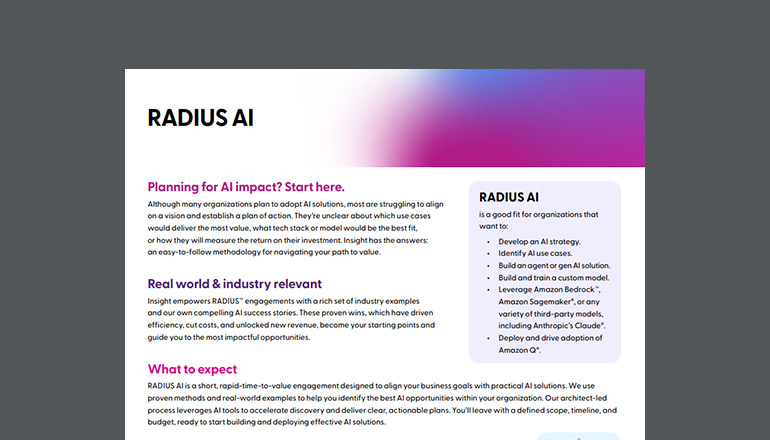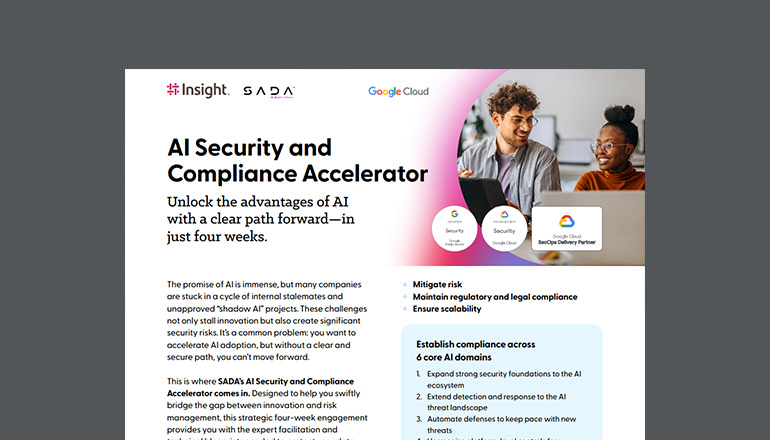Article
Mastering Data Security and
Compliance in the AI Era
Dive into the evolving realm of data security and compliance. One where the dynamic influence of generative AI takes center stage. Explore pivotal compliance regulations and learn about advanced AI-driven solutions that will fortify your data protection strategy.
By Farozan Khan / 15 Nov 2023 / Topics: Generative AI Cybersecurity Data protection

In an age driven by artificial intelligence, the significance of data protection and security has never been more critical. As AI technologies like GPT-3 continue to advance, organizations face a dual challenge: harnessing the immense power of AI while safeguarding their most valuable asset — data. Stringent regulations, like General Data Protection Regulation (GDPR) and California Consumer Privacy Act (CCPA), require organizations to navigate the complex terrain of data protection with utmost care. The good news is that AI is not merely a challenge but a potent ally in data security. With machine learning and AI-driven solutions, organizations can proactively detect and mitigate threats and strengthen data encryption.
In today’s digital world, data has become the lifeblood of businesses. It fuels innovation, enhances customer experiences and drives decision-making. As organizations race to utilize the transformative potential of AI, the significance of data protection has reached new heights.
AI technologies, ranging from machine learning to natural language processing, have redefined the way businesses operate — bringing automation, personalization and unprecedented insights to the forefront. However, with this incredible power comes the responsibility of safeguarding the invaluable data that fuels these AI systems.
AI systems, like chatbots and recommendation engines, thrive on large volumes of data. This data enables AI to understand, learn and make predictions. It also presents a significant security challenge. The more data an AI system processes, the greater the potential risk if that data falls into the wrong hands. This is where data protection comes in. Ensuring that sensitive information is shielded from breaches, misuse and unauthorized access is not only a regulatory requirement, but also a matter of trust and brand reputation. A 2023 Data Privacy Benchmark Study by Cisco found that 94% of security professionals representing major industries said their customers won’t buy from them if customer data is not properly protected.
In data protection, regulatory compliance laws such as the GDPR and the CCPA have taken on a major role. These laws hold organizations accountable for the ethical use of data — requiring transparency and user consent. AI, specifically generative AI, adds an additional layer of complexity in this ethical landscape. Ensuring AI systems do not inadvertently create biased content or infringe on data privacy is a pivotal challenge. Compliance with these regulations is not just about adhering to the law. It’s also about upholding ethical standards and maintaining the trust of customers and stakeholders.
Gartner predicts that 75% of the world’s population will have its personal data covered by modern privacy regulations by 2025. In 2024, the most significant growth rates are forecasted for investments in data privacy and cloud security.
Elevating data privacy with AI
In the wake of evolving data privacy regulations, AI is at the forefront of reshaping the data security landscape:
| AI-enhanced data mapping and inventory | AI-powered tools swiftly classify data and streamline the data inventory process. |
| AI-driven consent management | AI solutions allow automated consent tracking and personalizing user consent experiences. |
| Machine learning for data security | Efficient data protection and incident response through machine learning models used to identify potential security threats. |
| Automated Data Protection Impact Assessments (DPIAs) | AI streamlines the assessment process to minimize potential privacy risks. |
| Privacy by design | AI is leveraged to embed privacy into product development, promoting compliance and ethical data practices. |
U.S. state privacy laws in 2024
An increased focus on data protection and the adoption of the California Consumer Privacy Act (CCPA) as a trailblazer has prompted eleven states to enact comprehensive privacy legislation. There is an emphasis on transparency, accountability and data subject rights. Due to this, businesses are investing more in AI-driven solutions to adapt to the evolving state-specific privacy requirements.
In a data-driven business landscape, understanding the distinct data regulations in each state below is crucial:
- California Consumer Privacy Act of 2018
- California Consumer Privacy Rights Act Proposition 24 (Effective January 1, 2023)
- Colorado Privacy Act
- Connecticut Data Privacy Act
- Florida Digital Bill of Rights
- Indiana Consumer Data Protection Act
- Iowa Data Privacy Act
- Montana Consumer Data Privacy Act
- Tennessee Information Protection Act
- Texas Data Privacy and Security Act
- Utah Consumer Privacy Act
- Virginia Consumer Data Protection Act
Stay one step ahead
Partnering with Insight means you’re supported by a dedicated team. Our experts will guide you through privacy updates, endpoint security, user access control and top-tier data protection solutions. Our extensive range of trusted security offerings ensures that your most sensitive data remains protected.
Experience total data security with Insight by your side.





